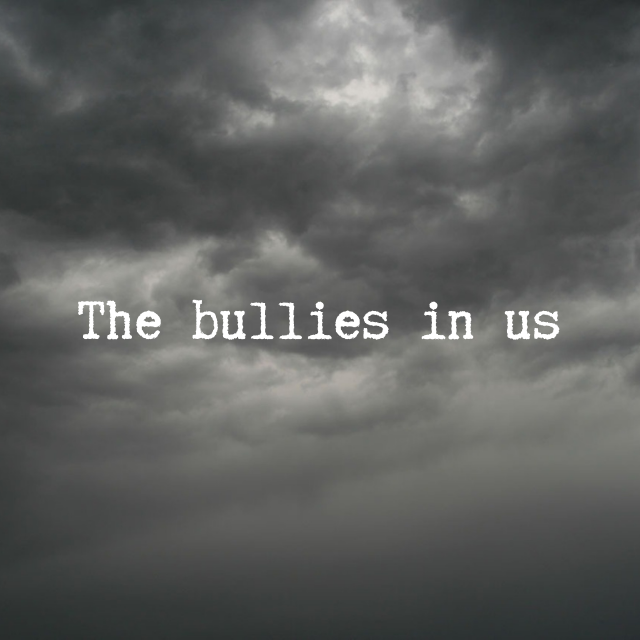Einstein once said that the world would not be destroyed by those who do evil. But by those who watch them without doing anything. We often see negative comments by haters on social media, and opted to scroll through. Not knowing that those comments may be a form of cyberbullying. The term cyberbullying refers to bullying in digital media. It can occur through social media, forums, chatting applications, online games, or any digital media where people can view and share contents. The act of cyberbullying includes posting or sharing negative, harmful, or false material about someone else to cause embarrassment. In some cases, it also crosses the line into criminal behavior. Cyberbullying can occur because of various reasons, here are some of the highlights.
One common reason for cyberbullying behavior is anonymity on the internet. In mediated communication, people tend to lie about all kinds of things, including age, gender, appearance, work experiences, etc. With those lies, people feel a false sense of security which leads to saying things they would never say to a person directly. This new-found courage can be useful in some instances; however, it can lead to psychological damage especially to teenagers. For example, if someone makes an insulting comment on a classmate’s photo, and suddenly that picture has gone viral, even made it into a meme without the classmate’s consent. One seemingly innocent or comment can be extra hurtful to the victim.
The Humblebrag Phenomena
Another reason people became cyberbullies is humblebrag behavior. Humblebrag is a recent phenomenon of publishing a self-deprecating statement with the purpose of drawing attention to something of which one is proud. The act of bragging makes someone sound like an egotist and narcissist, that is why humblebrag exists. However, humblebrag behavior makes a person look like a narcissist and deceptive.
Humblebrag posts could sway someone to say mean or mocking comments. Imagine reading ;
“I spill coffee on my tie, and guess who I meet later? The President of Indonesia”.
or
“Can’t believe I finished in the top 20, it was my personal worst”.
Unconsciously we will either want to teach some real humility to the person or block them.
A somewhat different reason for cyberbullying to occur is because people feel bored. Expert claims that almost 4,000 online cases involve claims of trolling. Trolling is an activity where people deliberately trigger outrage for their entertainment and should occur across forums and websites where the comment section is overwhelmed with insults or provocations. The same study stated that trolls act out of a feeling of boredom and power. An idle mind is the devil’s playground indeed.
Now, the question remains the same, if we do nothing does it means we are part of the bullies?
Cyberbullying happens for some reasons, some seem innocent enough, but the effect is harmful. The act spreads fast, public, and 24/7, where in some cases people cannot run away by merely logging off from the internet. Cyberbullying causes psychological and emotional stress, which can lead to depression and suicide.
While the immediate effects of cyberbullying—such as embarrassment, anxiety, and depression—are widely acknowledged, the long-term psychological impacts can be even more profound. Victims often experience lingering issues with trust, self-esteem, and social anxiety. The digital footprint of bullying can haunt individuals, affecting their future relationships, academic performance, and career opportunities.
Navigating the Digital Landscape: A Collective Responsibility
The digital age demands a new social contract, one that includes collective accountability for the online environment. Just as we adhere to social norms and laws in the physical world, our digital interactions should be guided by respect and kindness. Educators, parents, and policymakers play crucial roles in shaping these norms, through digital literacy education that emphasizes ethical online behavior and the consequences of cyberbullying.
Building Bridges with Digital Empathy
Empathy, the ability to understand and share the feelings of another, is the antidote to the impersonal nature of online communication. Digital empathy involves recognizing and respecting the emotions of others online, advocating for a more compassionate internet. By promoting stories of kindness and support in digital spaces, we can inspire a culture of empathy, encouraging users to think twice before posting harmful content.
Action Steps for Change
To combat cyberbullying, action must be taken at multiple levels:
- Individual Action: Equip yourself with knowledge about the signs of cyberbullying and the best ways to respond. Practice digital empathy by being mindful of your online comments and interactions.
- Community Support: Foster a supportive community by encouraging open discussions about cyberbullying and its impact. Schools and workplaces should implement clear policies and programs to address and prevent cyberbullying.
- Policy and Enforcement: Advocate for stronger policies and laws that protect individuals from cyberbullying. Support platforms that enforce strict anti-bullying measures and provide tools for reporting and managing harmful content.
The fight against cyberbullying is a collective endeavor that requires the participation of all internet users. By choosing to be active defenders of digital decency, we can transform online spaces into environments where empathy and kindness prevail over hatred and harassment. Let’s not be bystanders in the digital world—instead, let us be allies in building a safer, more inclusive online community for everyone.
Author: Mia
A writer and researcher who also a tech-addict and internet-junkie. Loves quirky stuff.
The Haptic Room is supported by our readers. Our site may contain links to affiliate websites, and if you make a purchase through these links, we receive a commission to support our site.

